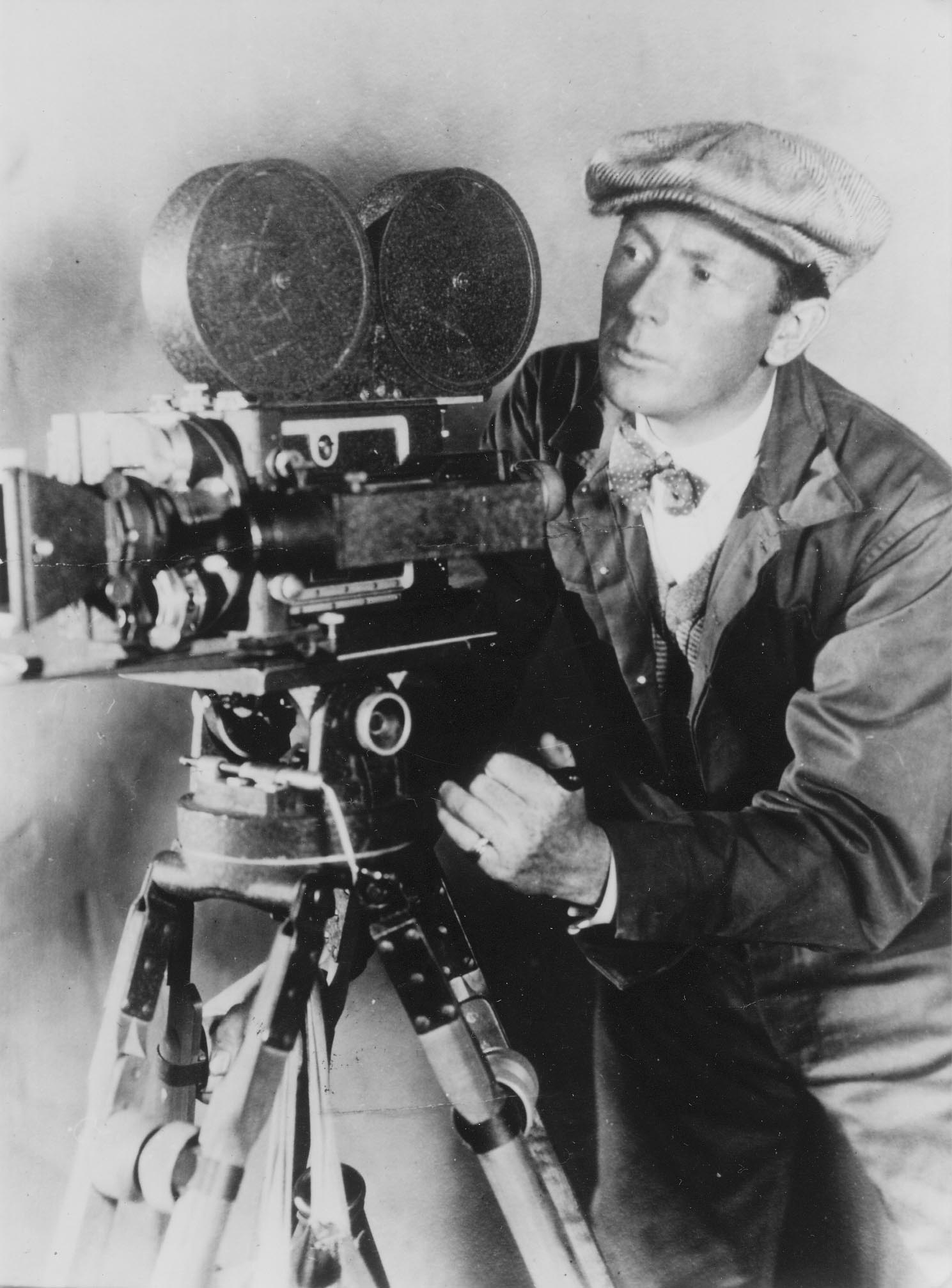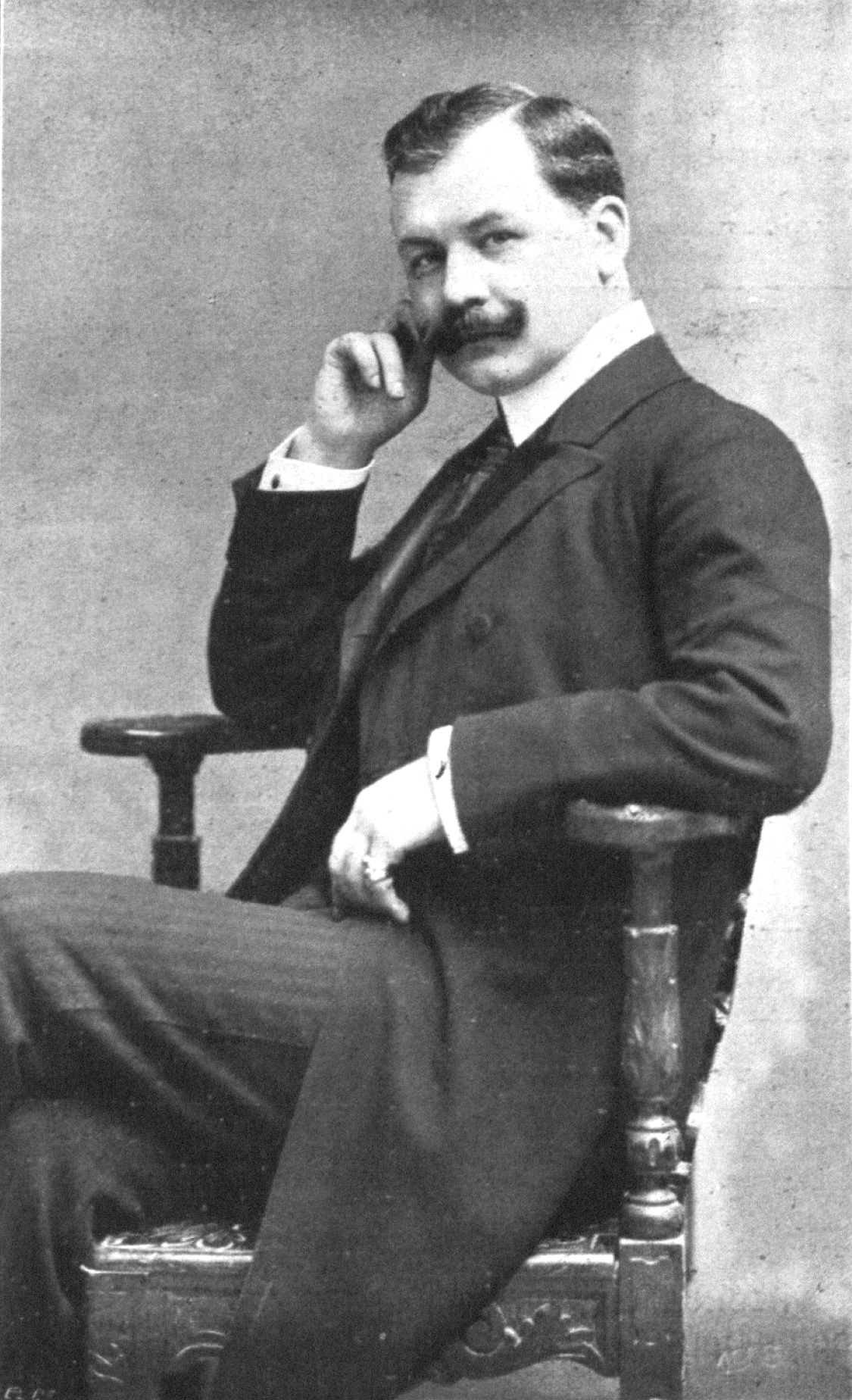|
Margarete Schlegel
Margarethe Sylva Elisabeth Wisniewski (né Schlegel, 31 December 1899 – 15 July 1987), known professionally as Margarete Schlegel, was a German theatre and film actress and soprano operetta singer. Early life The sixth of seven children and the third of four girls, Margarethe Sylva Elisabeth Schlegel was born at 11:45pm on 31 December 1899 in Bromberg, West Prussia, German Empire, (present-day Bydgoszcz, Poland) to a German-speaking Prussian-Polish Catholic family. Her father was Augustin Heinrich Schlegel (1865–1934), who legally changed the family surname from Wisniewski upon relocating them to Berlin in 1904, while her mother was Anna Agatha Schlegel (née Garski, 1864–1940). Career in Germany Naturally beautiful and talented (she could sing, dance and act well from an early age), Schlegel sought a chorus role in theatre in 1917 as a way of earning extra money for her family while still a schoolgirl due to the privations of war. This soon led to a starring role ... [...More Info...] [...Related Items...] OR: [Wikipedia] [Google] [Baidu] |
Bromberg
Bydgoszcz is a city in northern Poland and the largest city in the historical region of Kuyavia. Straddling the confluence of the Vistula River and its left-bank tributary, the Brda, the strategic location of Bydgoszcz has made it an inland port and a vital centre for trade and transportation. With a city population of 339,053 as of December 2021, Bydgoszcz is the eighth-largest city in Poland. Today, it is the seat of Bydgoszcz County and one of the two capitals of the Kuyavian-Pomeranian Voivodeship as a seat of its centrally appointed governor, a voivode. Bydgoszcz metropolitan area comprising the city and several adjacent communities is inhabited by half a million people, and forms a part of an extended polycentric Bydgoszcz-Toruń metropolitan area with a population of approximately 0.8 million inhabitants. Since the Middle Ages, Bydgoszcz served as a royal city of the Kingdom of Poland until partitions and experienced the industrialisation period bolstered by the c ... [...More Info...] [...Related Items...] OR: [Wikipedia] [Google] [Baidu] |
Phil Jutzi
Phil Jutzi (sometimes known as Piel Jutzi) (22 July 1896 – 1 May 1946) was a German cinematographer and film director. Biography Born Philipp Jutzi in Altleiningen as the son of a tailor, Jutzi was self-educated. (He seems to have been generally known by the Palatinate dialect form of his given name, Piel, but a lawsuit by Harry Piel forced him to go by "Phil," though many journalists continued to use "Piel.") In 1916 he made posters for a small movie theater in the Black Forest, having been rejected by the military during World War I because of a physical disability. In 1919 he was an administrator of the Internationale Film-Industrie company in Heidelberg, which specialized in detective movies and westerns. In 1923 he married Emmy Philippine Zimmermann, the sister of the actor Holmes Zimmermann (born Johannes Zimmermann, 1900–1957), who acted in seven of his films; in May 1926 a daughter, Gisela, was born. In 1925 Jutzi moved to Berlin, where he worked as a documentary camera ... [...More Info...] [...Related Items...] OR: [Wikipedia] [Google] [Baidu] |
Desire (1921 Film)
''Desire'' () is a 1921 silent film directed by F. W. Murnau and starring Conrad Veidt. It tells the story of a male dancer who falls in love with a grand duchess, only to be arrested, and his subsequent attempt to find the duchess. , it is believed to be a lost film as no prints are known to exist. Robert Neppach worked as the film's art director. Plot A young student from Russia (Conrad Veidt) is studying (art or dancing, records of the film are unclear) in Geneva, Switzerland. He wants to go home for a visit, but has no funds. A group of Nihilists need someone to go to Russia for some plot (that plot is not clear, as the film has been lost). The student allows himself to be recruited as their agent, and he goes to Russia. In Russia, the student meets a young, beautiful Grand Duchess (Gussy Holl), and they fall in love. The student attempts to complete his plot, but is arrested. After some time in prison, he escapes and begins searching for his lost lover. After some time, he ... [...More Info...] [...Related Items...] OR: [Wikipedia] [Google] [Baidu] |
Christian Wahnschaffe
''Christian Wahnschaffe'' is a 1920 German silent drama film directed by Urban Gad and starring Conrad Veidt, Lillebil Ibsen, Hermann Vallentin and Fritz Kortner. It was released in two parts ''World Ablaze'' (''Weltbrand'') in November 1920 and ''The Escape from the Golden Prison'' (''Die Flucht aus dem goldenen Kerker'') in March 1921. It is an adaptation of the novel of the same title by Jakob Wassermann. The film is extant, and was restored in 2018 by the Friedrich-Wilhelm-Murnau-Stiftung. The film's sets were designed by the art director Robert A. Dietrich Robert A. Dietrich (28 March 1889 – 8 September 1947) was a German art director.Scheunemann p.277 He designed the sets for more than a hundred films during his career. Selected filmography * ''The Student of Prague (1913 film), The Student of P .... Cast Part 1: World Ablaze Part 2: The Escape from the Golden Prison References Bibliography * * External links * * 1920 films 1921 films Films of the Weima ... [...More Info...] [...Related Items...] OR: [Wikipedia] [Google] [Baidu] |
The Head Of Janus
''Der Januskopf'' () is a lost 1920 German silent film directed by F. W. Murnau. The film was an adaptation of Robert Louis Stevenson's 1886 novella ''Strange Case of Dr. Jekyll and Mr. Hyde.'' Little is known about the production. It was shot and previewed under the title ''Schrecken'' () with production starting in either February or March 1920. The film received great acclaim in Germany from trade publication and newspapers on its release, specifically noting the performance by Conrad Veidt. The film has been described by Bela Lugosi biographers Gary Rhodes and Bill Kaffenberger as being "among the most sought-after lost films" due to its initial critical acclaim and what Robert Louis Stevenson researcher Steve Joyce described as an "all-star" film team of cinematographer Karl Freund, director F. W. Murnau and actors Conrad Veidt and Bela Lugosi. Plot The surviving script for the film refers to Dr.Jeskyll who lives in London. Jeskyll purchases a bust in an antique store w ... [...More Info...] [...Related Items...] OR: [Wikipedia] [Google] [Baidu] |
Prince Cuckoo
''Prince Cuckoo'' () is a 1919 German silent drama film directed by Paul Leni and starring Conrad Veidt, Olga Limburg, and Magnus Stifter. It premiered at the Marmorhaus. It is now considered a lost film. It was shot at the Babelsberg Studios in Berlin Berlin ( ; ) is the Capital of Germany, capital and largest city of Germany, by both area and List of cities in Germany by population, population. With 3.7 million inhabitants, it has the List of cities in the European Union by population withi .... The film's sets were designed by the art directors Karl Machus and Otto Moldenhauer along with Leni. Cast References Bibliography * External links * 1919 films 1919 drama films 1919 lost films 1910s German films 1910s German-language films Films directed by Paul Leni Films of the Weimar Republic Films shot at Babelsberg Studios German black-and-white films German silent feature films German-language drama films Lost German drama films Silent Ge ... [...More Info...] [...Related Items...] OR: [Wikipedia] [Google] [Baidu] |
Sussex
Sussex (Help:IPA/English, /ˈsʌsɪks/; from the Old English ''Sūþseaxe''; lit. 'South Saxons'; 'Sussex') is an area within South East England that was historically a kingdom of Sussex, kingdom and, later, a Historic counties of England, county. It includes the Ceremonial counties of England, ceremonial counties of East Sussex and West Sussex. The area borders the English Channel to the south, and the Ceremonial counties of England, ceremonial counties of Surrey to the north, Kent to the north-east, and Hampshire to the west. Sussex contains the city of Brighton and Hove and its wider Greater Brighton City Region, city region, as well as the South Downs National Park and the National Landscapes of the High Weald National Landscape, High Weald and Chichester Harbour. Its coastline is long. The Kingdom of Sussex emerged in the fifth century in the area that had previously been inhabited by the Regni tribe in the Roman Britain, Romano-British period. In about 827, shortly a ... [...More Info...] [...Related Items...] OR: [Wikipedia] [Google] [Baidu] |
Heinrich Himmler
Heinrich Luitpold Himmler (; 7 October 1900 – 23 May 1945) was a German Nazism, Nazi politician and military leader who was the 4th of the (Protection Squadron; SS), a leading member of the Nazi Party, and one of the most powerful people in Nazi Germany. He is primarily known for being one of the main architects of the Holocaust. After serving in a reserve battalion during World War I without seeing combat, Himmler went on to join the Nazi Party in 1923. In 1925, he joined the SS, a small paramilitary arm of the Nazi Party that served as a bodyguard unit for Adolf Hitler. Subsequently, Himmler rose steadily through the SS's ranks to become by 1929. Under Himmler's leadership, the SS grew from a 290-man battalion into one of the most powerful institutions within Nazi Germany. Over the course of his career, Himmler acquired a reputation for good organisational skills as well as for selecting highly competent subordinates, such as Reinhard Heydrich. From 1943 onwards, ... [...More Info...] [...Related Items...] OR: [Wikipedia] [Google] [Baidu] |
Technische Universität Berlin
(TU Berlin; also known as Berlin Institute of Technology and Technical University of Berlin, although officially the name should not be translated) is a public university, public research university located in Berlin, Germany. It was the first German university to adopt the name "Technische Universität" (university of technology). The university alumni and staff includes several United States National Academies, US National Academies members, two National Medal of Science laureates, the creator of the first fully functional programmable (electromechanical) computer, Konrad Zuse, and ten Nobel Prize laureates. TU Berlin is a member of TU9, an incorporated society of the largest and most notable German institutes of technology and of the Top International Managers in Engineering network, which allows for student exchanges between leading engineering schools. It belongs to the Conference of European Schools for Advanced Engineering Education and Research. The TU Berlin is home of ... [...More Info...] [...Related Items...] OR: [Wikipedia] [Google] [Baidu] |
Technische Hochschule
A ''Technische Hochschule'' (, plural: ''Technische Hochschulen'', abbreviated ''TH'') is a type of university focusing on engineering sciences in Germany. Previously, it also existed in Austria, Switzerland, the Netherlands (), and Finland (, ). In the 1970s (in Germany) and the 1980s (in the Netherlands), the ''Technische Hochschule'' emerged into the (German) or (Dutch). Since 2009, several German universities of applied sciences were renamed as . Terminology In German-language countries, the term ''Hochschule'' is more general than ''Universität'' (plural: ''Universitäten'') and also encompasses universities which do not have the right to confer doctorates and habilitations, in contrast to ''Universitäten''. Today, ''Universitäten'' as well as other ''Hochschulen'' call themselves ''Technische Hochschule'' for historical reasons. However, a ''Technische Hochschule'' with the status of a ''Universität'' is regarded as a ''Technische Universität'' despite the name ... [...More Info...] [...Related Items...] OR: [Wikipedia] [Google] [Baidu] |
The Merry Widow
''The Merry Widow'' ( ) is an operetta by the Austria-Hungary, Austro-Hungarian composer Franz Lehár. The Libretto, librettists, Viktor Léon and Leo Stein (writer), Leo Stein, based the story – concerning a rich widow, and her countrymen's attempt to keep her money in the principality by finding her the right husband – on an 1861 comedy play, (''The Embassy Attaché'') by Henri Meilhac. The operetta has enjoyed extraordinary international success since its 1905 premiere in Vienna and continues to be frequently revived and recorded. Film and other adaptations have also been made. Well-known music from the score includes the "Supernatural beings in Slavic folklore#Vila, Vilja Song", "" ("You'll Find Me at Maxim's"), and the "Merry Widow Waltz". Background In 1861, Henri Meilhac premiered a comic play in Paris, (''The Embassy Attaché''), in which the Parisian ambassador of a poor German grand duchy, Baron Scharpf, schemes to arrange a marriage between his country's rich ... [...More Info...] [...Related Items...] OR: [Wikipedia] [Google] [Baidu] |
Franz Lehár
Franz Lehár ( ; ; 30 April 1870 – 24 October 1948) was an Austro-Hungarian composer. He is mainly known for his operettas, of which the most successful and best known is '' The Merry Widow'' (''Die lustige Witwe''). Life and career Lehár was born in the northern part of Komárom, Kingdom of Hungary (now Komárno, Slovakia), the eldest son of Franz Lehar Sr. (1838–1898), an Austrian bandmaster in the Infantry Regiment No. 50 of the Austro-Hungarian Army and Christine Neubrandt (1849–1906), a Hungarian woman from a family of German descent. He grew up speaking only Hungarian until the age of 12. He later put an acute accent above the ''a'' of his father's surname ''Lehar'' to indicate the pronunciation of the vowel as , in accordance with Hungarian orthography. While his younger brother Anton entered cadet school in Vienna to become a professional officer, Franz studied violin at the Prague Conservatory, where his violin teacher was Antonín Bennewitz, ... [...More Info...] [...Related Items...] OR: [Wikipedia] [Google] [Baidu] |





